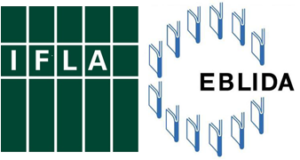 Joint statement by the International Federation of Library Associations and Institutions and the European Bureau of Library, Information and Documentation Associations, Link (CC-BY)
Joint statement by the International Federation of Library Associations and Institutions and the European Bureau of Library, Information and Documentation Associations, Link (CC-BY)
As we enter the final days of the countdown to the entry into force of the 2013 Marrakesh Treaty for Visually Impaired Persons, there is cause for some optimism in Europe.
The European Commission has published draft legislation that will establish a clear right for individuals and ‘authorised entities’ such as libraries to make accessible copies of books for visually impaired people and those with other reading disabilities. Moreover, it opens the way to the sharing of such copies, not only within and between the EU’s Member States, but also globally.
If ratification is done correctly for its beneficiaries, it will benefit some of the most vulnerable citizens not only in the EU, but also in other countries where languages such as English, French, Spanish, Portuguese are common. Libraries and other authorised entities such as charities for visually impaired and reading disabled people stand ready to make this happen.
No Loopholes
Two weeks ago, IFLA warned of the risk of governments using loopholes to introduce new barriers to access to knowledge for reading-disabled people and called for the rejection of measures that risk violating the spirit of the Treaty and diluting its usefulness and impact.
We welcome the exclusion from the proposals of a ‘commercial availability’ test and of supplementary payments to rightholders.
However, the proposed obligation on libraries and other authorised entities to publish detailed information demonstrating compliance of their applicable processes with the Regulation raises concerns, as does the requirement to satisfy unlimited demands to provide extensive information about cross-border supply of titles in accessible formats.
These provisions do not appear in the original Treaty – the result of years of detailed negotiation – are not in its spirit and would be unnecessarily burdensome on authorised entities. They would require these non-profit, public service bodies to spend more time on bureaucratic paperwork at a cost to both the public purse and charity funds in straitened times, and spend less time on helping those who need it. The aim must be to support the public and charitable bodies that assist people with visual impairments or other print disabilities, not to treat them as potential criminals.
Just a Small Step Away from a Good Law
Thanks to the European Commission, much of the work toward ratification is done. Now is the time for MEPs and Member States to ensure that the EU gets its Marrakesh Treaty ratification right. We urge them to take the steps needed to reflect fully the spirit of Marrakesh.
The changes needed in the draft legislation are small but critical, and would prove that Europe is capable of acting in the interests of reading-disabled citizens, at home and globally.
EBLIDA is the independent umbrella association of library, information, documentation and archive associations and institutions in Europe. IFLA is the leading international body representing the interests of library and information services and their users. It is the global voice of the library and information profession. For more information, please contact vincent.bonnet@eblida.org or stephen.wyber@ifla.org.




